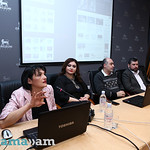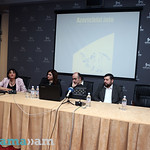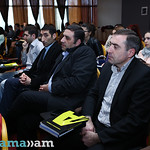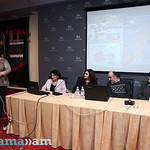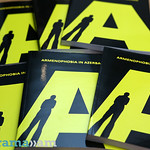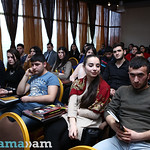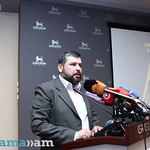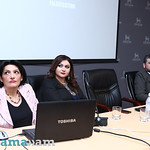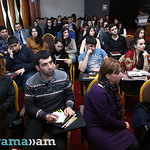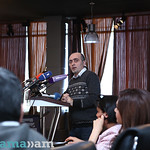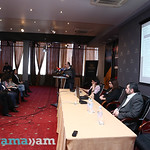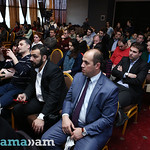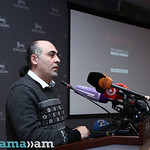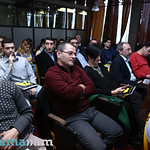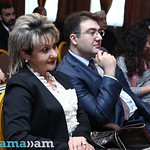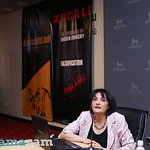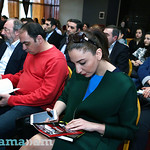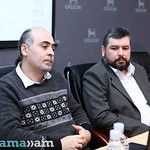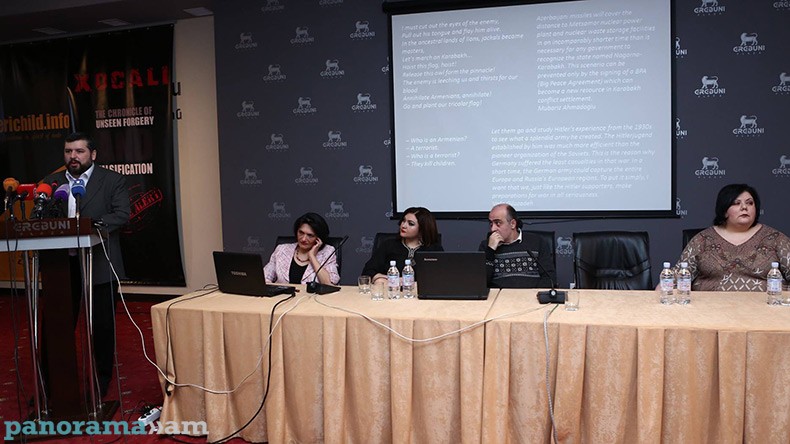
“Jews have not faced such xenophobic propaganda”: Armenophobia in Azerbaijan
The English version of the book “Armenophobia in Azerbaijan” was published. The main aim is to inform wider circles about the Armenophobic phenomena going on in Azerbaijan. PhD in Political Sciences Anzhela Elibegova, the co-author of the book, who specialises in geopolitics of the South Caucasus, told the journalists that the Russian-language version of the book had been published in 2013. The response to the book was quite interesting, Elibegova said. The book has not been criticised at all, as the Azerbaijanis have confessed themselves that they have not read it.
The book is based on a study of Azerbaijani children’s and educational literature, fiction, and the statements made by officials.
“We have compiled the book by studying the statements made on the official level, the Azerbaijani media, the websites, and the displays of Armenophobia spreading inside the society. We have collected this all and analysed. We are still continuing to collect data,” Elibegova said.
Armine Adibekyan, the co-author of the book, who heads Xenophobia Prevention Initiative NGO, informed about the website of the book, where the users can access Azerbaijani officials’ statements left out of the book. “Had we included everything, it would become an over-20-volume research,” she said.
“Armenophobia in Azerbaijan” was published with the support of the Information and Public Relations Centre of the Administration of the President of the Republic of Armenia. Copies of the book have been handed to the Foreign and Diaspora Ministries, which will forward it to various international entities in their turn.
The new and refreshed version of the website xocali.net , as well as the English version of the website azerichild.info were also presented to the journalists.
Adibekyan said the falsified materials, which the Azerbaijani propaganda machine uses to spread misleading information, are available on xocali.net. “The lists presented contradict each other. The interviews and statements made in 1992 claim one thing, while those made today another. The events are presented in a totally altered way, we can observe serious differences,” she pointed out.
According to Samvel Martirosyan, specialist of information security, the English version of xocali.net has been significantly enriched and more proofs about forgeries have been added.
“The propaganda machine of Azerbaijan has developed the topic of Khojaly alone for long years, as Armenia did not address it on the state level. Actually, Azerbaijan has long had a chance to introduce its own version without any counteraction, issuing an enormous number of falsifications,” Martirosyan highlighted.
The English version of azerichild.info presents Armenophobic examples of children’s educational literature and methodology, where the Armenians are introduced as monsters, Adibekyan said.
“The website had only Russian version at the beginning because we were translating the materials from Azerbaijani. Today, it is also available in English enabling more people to realise who we deal with.”
PhD in Psychological sciences Izabella Ghazaryan said a three-year-old child is taught that the Armenians are evil spirits. Growing up in this atmosphere, they perceive an Armenian as an evil spirit rather than a human being.
“They get to know the world in a distorted way. The perception of the world is formed before a child reaches the age of 12. The Azerbaijani children perceive a world where the Armenian is an evil spirit,” the psychologist noted.
Karen Vrtanesyan, a military expert, said the recent decades have seen establishment of a situation, where the Armenians are considered guilty of everything bad in Azerbaijan as a result of the propaganda carried out by Azerbaijan’s government.
“The propaganda has reached to a point where we can say even the Jews in Nazi Germany did not face such xenophobic propaganda as it is in Azerbaijan now,” he stressed.
When asked whether the initiatives of the kind will be ongoing, Armine Adibekyan said, “Azerbaijan does not give us the chance to stop. They always provide us with materials which need to be analysed. We will not remain jobless as long as Azerbaijan is standing on this ground.”
She also added that new projects are being worked on. They have particularly compiled a rich informational database about Azerbaijan’s caviar diplomacy.
According to her, international entities are well aware of what kind of generation is growing up in Azerbaijan, as well as of the Armenophobic phenomena displayed there. She said it is because of the politics that nothing is done about that. “I do not expect any significant change,” Adibekyan said.
.jpg)
.jpg)
.jpg)
.jpg)
.jpg)
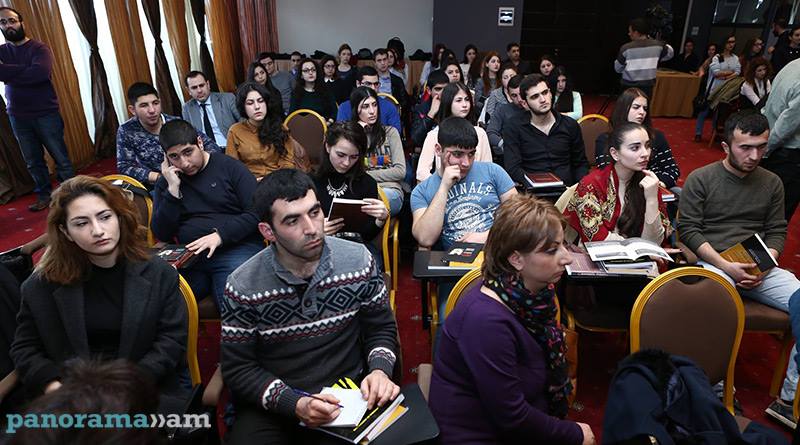
.jpg)
Related news
Newsfeed
Videos





